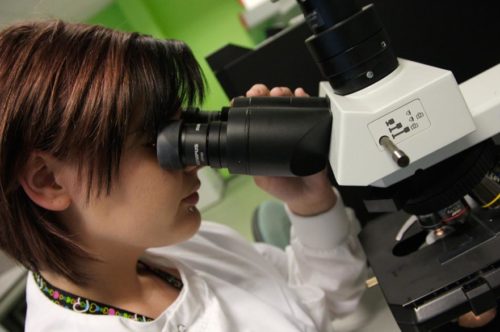Our Medical Sciences degree is designed primarily for students who want to become medical doctors. Every year, there are ten places available on the A101 medicine programme at Cardiff University for suitably qualified graduates of this course and our graduates are also able to progress to graduate entry medicine at other universities.
The teaching of all subject areas, which range from anatomy and physiology to clinical skills and health policy, is reinforced by applying theoretical knowledge to clinical scenarios. Throughout the Medical Sciences degree you will gain valuable, hands-on clinical training and research experience from intensive work placements in local NHS facilities.
As well as being a strong scientific qualification, a key feature of our Medical Sciences course is the application of scientific knowledge to clinical scenarios using simulation and case-based learning.
From studying topics as diverse as tropical medicine, clinical practice or biological anthropology to potentially being selected to take part in human dissection, you will gain robust scientific knowledge and skills during this course.
When you graduate, you’ll be able to decide which area of healthcare is suitable for you and be in a very strong position for an application to graduate entry medicine.
What you will study
From studying topics as diverse as tropical medicine, clinical practice or biological anthropology, to potentially being selected to take part in human dissection, you will gain robust scientific knowledge and skills during this course. When you graduate, you’ll be able to decide which area of healthcare is suitable for you and be in a very strong position for an application to postgraduate medicine.
Year One: Medical Sciences Degree
The first year introduces you to the science of life, to the scientific method and clinical practice.
- Microorganisms and the Dynamic Cell
- Human Anatomy and Physiology
- Biomedical Research Skills
- Introduction to Clinical Practice
- Biological Chemistry
- Genetics and Evolution
Year Two: Medical Sciences Degree
The second year builds on the foundations laid in year 1. We introduce you to case-based learning; with clinical practice, human form and function and clinical physiology all integrating as one module to help you really understand what happens when people become ill.
- Clinical Practice
- Human Form and Function
- Clinical Physiology
- Metabolism and Biochemistry
- Medical Microbiology
- Human Molecular Genetics
Year Three: Medical Sciences Degree
Your final year lets you choose modules that are most relevant to your career aims. There will be core modules in immunology, pharmacology, epidemiology, as well as optional areas like tropical medicine or anthropology. All areas of the Medical Sciences course provide extra opportunities for clinical training and research, which will improve your career potential.
- Project or Human Structure (human cadaver dissection with Cardiff University School of Medicine)
- Epidemiology and Public Health
- Tropical Medicine
- Human Variation and Forensic Anthropology
- Clinical Biochemistry and Pharmacology
- Clinical and Molecular Immunology
Teaching
You will learn through lectures, tutorial support, workshops, practical laboratory sessions, placements, directed and self-directed study and approximately 80 hours of work based learning in local hospitals.
In many medical schools, you are exposed to case/problem-based learning, so we have incorporated this into our teaching methods and assess you on these modules in a similar way to medical school exams. These teaching methods promote lifelong learning, open inquiry, teamwork, and critical thinking which are essential transferable skills.
Zobacz więcej na stronie uniwersytetu >>
Wiza studencka do Wielkiej Brytanii
Aby studiować w Wielkiej Brytanii potrzebujesz wizy studenckiej. Aby złożyć wniosek o taką wizę studencką musisz zdjać certyfikat językowy na poziomie B2.
Uważaj! Do celów wizowych musisz wybrać wyłącznie egzamin w wesji Secure English Language Test (SELT) UKVI .
Co to jest test SELT UK VI registration? Przeczytaj więcej o testach SELT UKVI >>




















